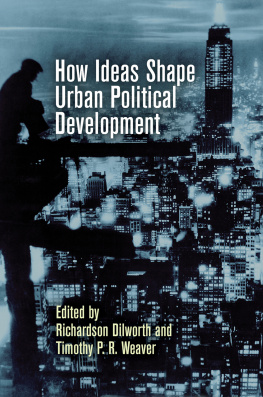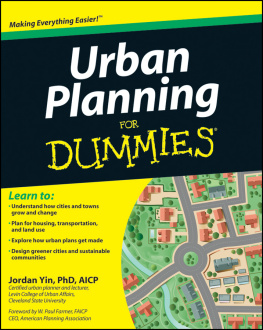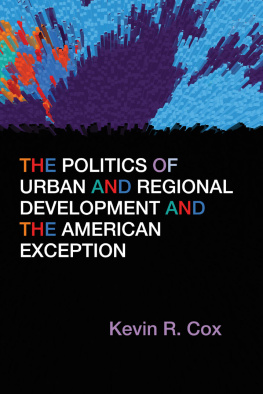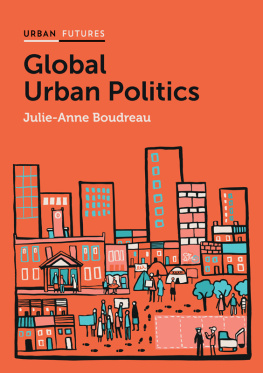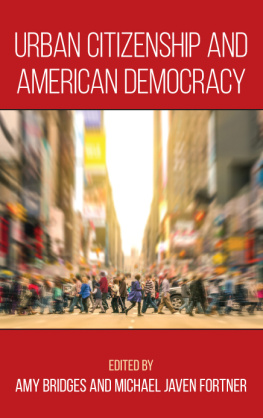Richardson Dilworth - How Ideas Shape Urban Political Development
Here you can read online Richardson Dilworth - How Ideas Shape Urban Political Development full text of the book (entire story) in english for free. Download pdf and epub, get meaning, cover and reviews about this ebook. year: 2020, publisher: University of Pennsylvania Press, Inc., genre: Politics. Description of the work, (preface) as well as reviews are available. Best literature library LitArk.com created for fans of good reading and offers a wide selection of genres:
Romance novel
Science fiction
Adventure
Detective
Science
History
Home and family
Prose
Art
Politics
Computer
Non-fiction
Religion
Business
Children
Humor
Choose a favorite category and find really read worthwhile books. Enjoy immersion in the world of imagination, feel the emotions of the characters or learn something new for yourself, make an fascinating discovery.
- Book:How Ideas Shape Urban Political Development
- Author:
- Publisher:University of Pennsylvania Press, Inc.
- Genre:
- Year:2020
- Rating:5 / 5
- Favourites:Add to favourites
- Your mark:
How Ideas Shape Urban Political Development: summary, description and annotation
We offer to read an annotation, description, summary or preface (depends on what the author of the book "How Ideas Shape Urban Political Development" wrote himself). If you haven't found the necessary information about the book — write in the comments, we will try to find it.
A collection of international case studies that demonstrate the importance of ideas to urban political development
Ideas, interests, and institutions are the holy trinity of the study of politics. Of the three, ideas are arguably the hardest with which to grapple and, despite a generally broad agreement concerning their fundamental importance, the most often neglected. Nowhere is this more evident than in the study of urban politics and urban political development.
The essays in How Ideas Shape Urban Political Development argue that ideas have been the real drivers behind urban political development and offer as evidence national and international examplessome unique to specific cities, regions, and countries, and some of global impact. Within the United States, contributors examine the idea of blight and how it became a powerful metaphor in city planning; the identification of racially-defined spaces, especially black cities and city neighborhoods, as specific targets of neoliberal disciplinary practices; the paradox of members of Congress who were active supporters of civil rights legislation in the 1950s and 1960s but enjoyed the support of big-city political machines that were hardly liberal when it came to questions of race in their home districts; and the intersection of national education policy, local school politics, and the politics of immigration. Essays compare the ways in which national urban policies have taken different shapes in countries similar to the United States, namely, Canada and the United Kingdom. The volume also presents case studies of city-based political development in Chile, China, India, and Africaareas of the world that have experienced a more recent form of urbanization that feature deep and intimate ties and similarities to urban political development in the Global North, but which have occurred on a broader scale.
Contributors: Daniel Bland, Debjani Bhattacharyya, Robert Henry Cox, Richardson Dilworth, Jason Hackworth, Marcus Anthony Hunter, William Hurst, Sally Ford Lawton, Thomas Ogorzalek, Eleonora Pasotti, Joel Rast, Douglas S. Reed, Mara Sidney, Lester K. Spence, Vanessa Watson, Timothy P. R. Weaver, Amy Widestrom.
Richardson Dilworth: author's other books
Who wrote How Ideas Shape Urban Political Development? Find out the surname, the name of the author of the book and a list of all author's works by series.

